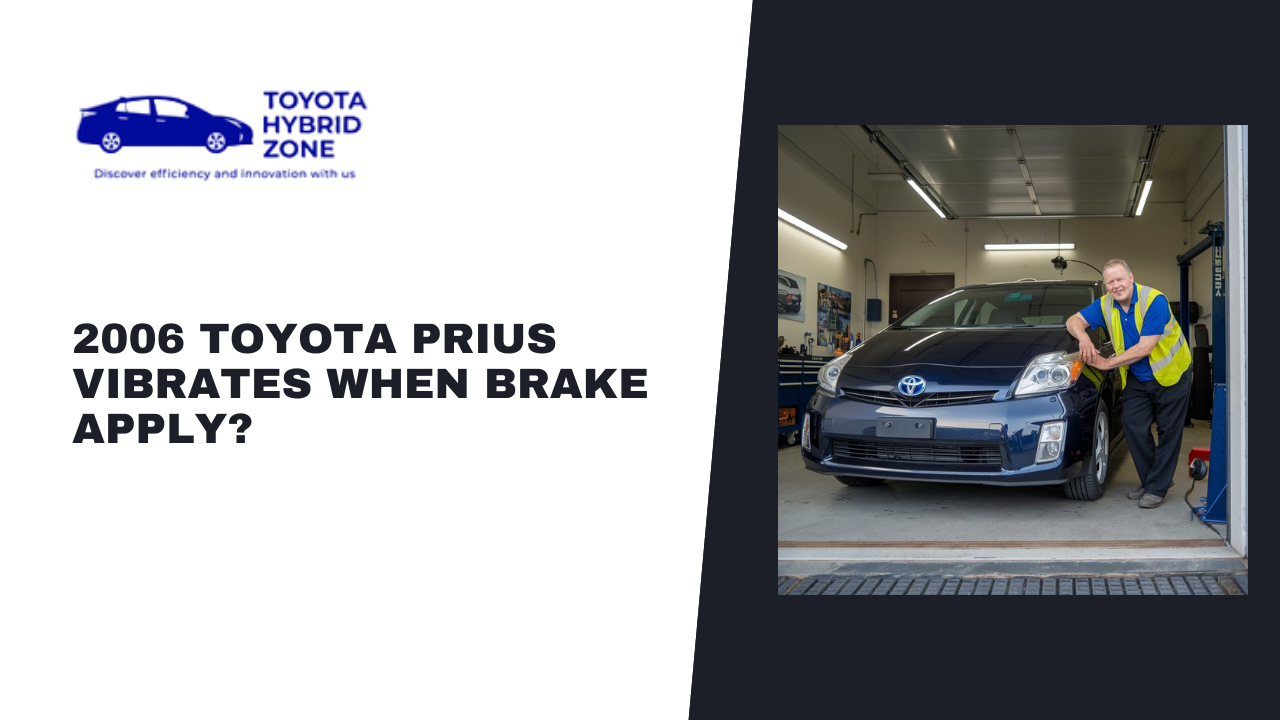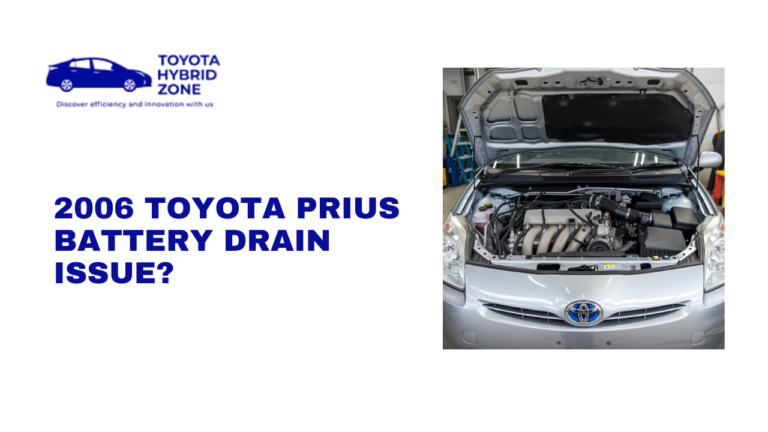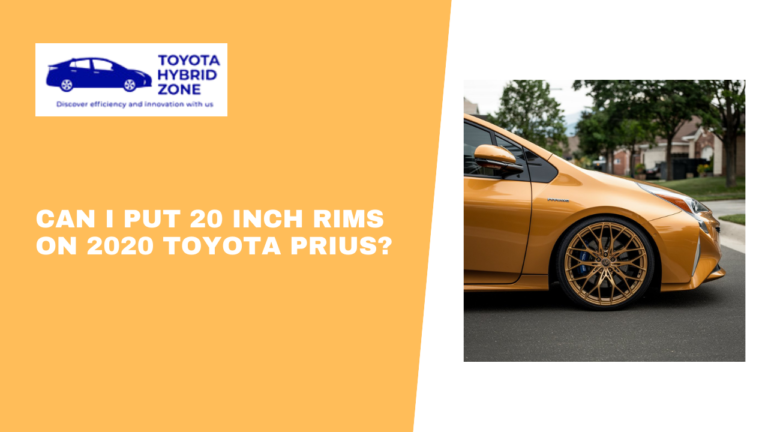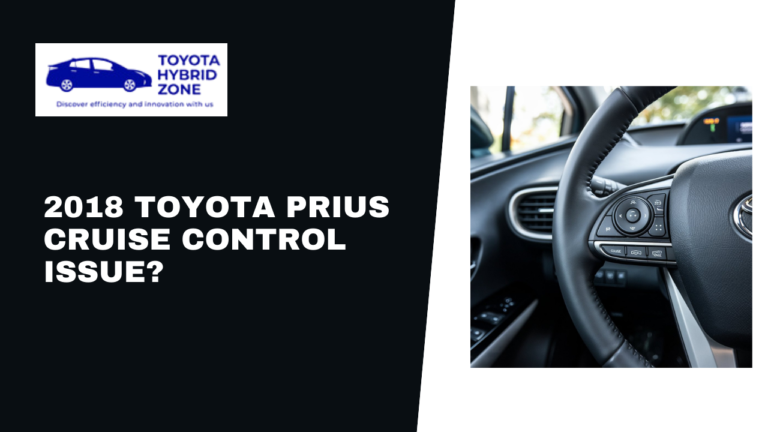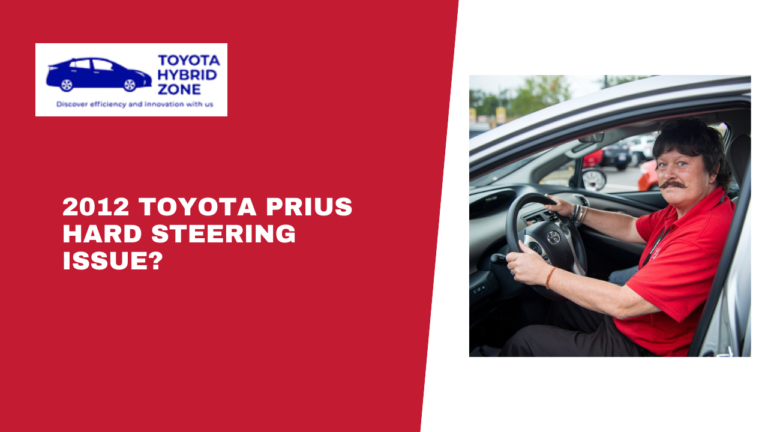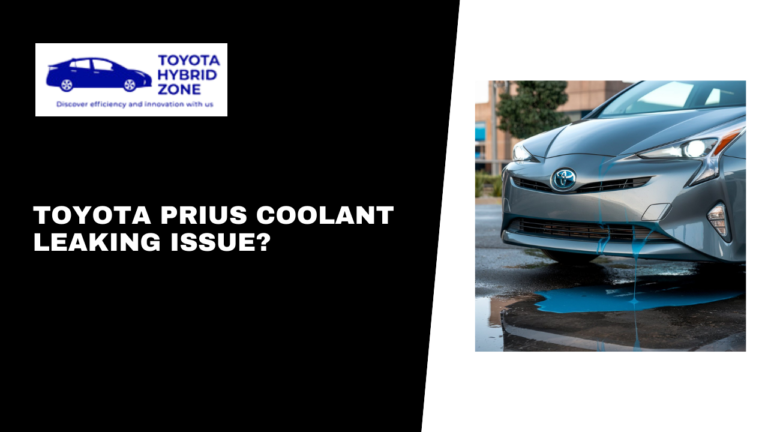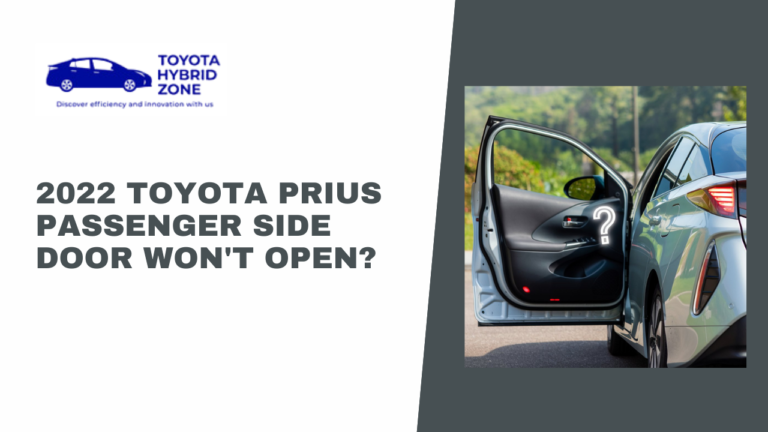2006 Toyota Prius Vibrates When Brake Apply? A Guide to Fixing Your Prius Vibration Issue!
Why is my 2006 Toyota Prius vibrating when I apply the brakes? A vibrating brake system can greatly impact your vehicle’s safety and driving experience. There are many reasons why this could be happening, including worn brake pads, warped rotors, or problems with the braking system components.
In this blog post, we will examine some of the common causes of brake vibration in a 2006 Prius, offer solutions, and provide expert advice. We will achieve this through personal experience, professional insights, and information from the most credible sources.
Short Answer:
Understanding The Problem:
When a 2006 Toyota Prius vibrates when applying brakes, it usually indicates a mechanical problem within the braking system. This vibration may be as mild as a shimmy or as extreme as a shake.
Common Causes And Solutions
Warped Brake Rotors:
- Description: Warping brake rotors are usually caused by overheating or uneven wear. It results in pulsating vibrations during braking.
- Solution: Replace the damaged rotors with new ones. The cost to replace brake rotors on a 2006 Prius is estimated in the range of $200 to $400 per axle, depending on a specific model and labor charge.
Brake Pads
- Brake pads that have become worn out tend to produce a lot of problems including vibration, noise and decreased braking power.
- Solution: The brake pads need to be replaced. Replacing brake pads on a 2006 Prius usually costs between $100 and $250 per axle, depending on the model and labor cost.
Bad Brake Caliper:
- A bad brake caliper causes uneven wear on brake pads and vibration.
- Solution: Replace or repair the defective brake caliper. The price for replacing or repairing a brake caliper on a 2006 Prius ranges from $200 to $500, depending on the model and labor cost.
Tire Problems
- Problem Description: Vibrations due to imbalanced or misaligned tires. This usually happens at higher speeds.
- Solution: Balance and align the tires. Tire balancing and alignment for a 2006 Prius typically run between $50 and $100 per axle.
Wheel Bearing Problems:
- A worn wheel bearing can cause a number of problems, including vibration, noise, and loss of steering control.
- Solution: Replace the worn wheel bearings. The cost of replacing wheel bearings for a 2006 Prius typically ranges from $200 to $500 per wheel, depending on the specific model and labor costs.
“To estimate your potential fuel savings, use our Fuel Savings Calculator . Simply input your current fuel consumption and desired improvement to see the estimated savings.”
Why Is My 2006 Toyota Prius Vibrating When I Apply The Brakes?
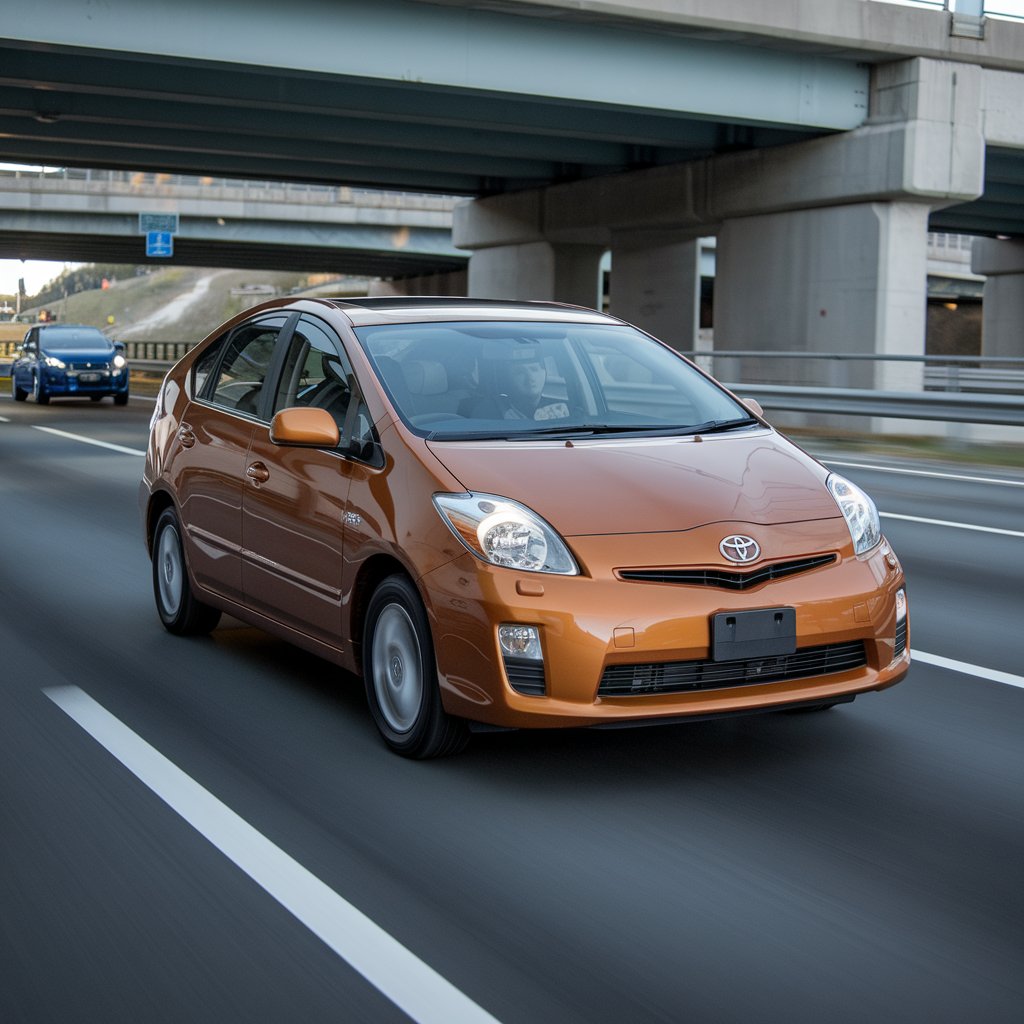
A 2006 Toyota Prius that vibrates upon braking can be very irritating. Although it may appear alarming, several common factors are likely to cause this kind of problem. Let’s identify the most probable culprits:
1. Warped Brake Rotors
- The Culprit: Overheating or uneven wear can warp brake rotors, leading to a pulsating vibration when braking.
- The Cost: Replacing warped rotors usually costs between $250 and $500 for an axle, including labor.
2. Worn Brake Pads
- The Cause: Worn-out brake pads will affect braking performance and create vibrations.
- The Price: The cost to replace brake pads ranges between $150 and $300 for a set of pads, per axle, depending on the mechanic.
3. Faulty Brake Calipers
- The Cause: A malfunctioning brake caliper may lead to uneven wear on brake pads, which further creates vibrations.
- The Price: Fixing or replacing a malfunctioning brake caliper costs around $200 and $600 for one caliper, including labor.
4. Tire Problems
- Unbalanced Tires: The tires may be out of balance, and this can cause vibration, especially at higher speeds.
- Misaligned Tires: Improper wheel alignment may cause pulling and vibration.
- The Cost: Tire balancing and alignment will cost between $50 and $100 per axle.
5. Wheel Bearing Wear
- The Culprit: Worn wheel bearings may cause a variety of problems, including vibrations and noise.
- The Cost: Replacement of wheel bearings may cost between $250 and $600 per wheel, including labor.
“If you’re considering modifying your Prius, such as adding larger rims, check out our article on [ Can I Put 20 Inch Rims On 2020 Toyota Prius? ] to learn about the potential impacts on your vehicle’s performance and handling.”
What Are The Potential Repair Costs For A Vibrating Brake System In A 2006 Prius?
The cost of repairing a vibrating brake system in a 2006 Prius can vary due to the cause and where it is repaired. That said, here is an estimated general cost of possible repairs:
Common Repairs And Costs
- Brake Pad Replacement: This is relatively the most common and cheapest of repairs, costing about $150 to $300 for each axle, inclusive of labor.
- Braking rotor resurfacing or replacing it: If the rotors have warped, the cost to resurface a rotor will be around $50-$100 per rotor. But, to replace it is rather pricey, costing anywhere between $150 and $300 for one rotor.
- Brake Caliper Repair or Replacement: These can be costly to replace with faulty ones and range in price between $200 and $600, including labor to replace the brake calipers.
- Tire Balancing and Alignment: If the vibration is due to tire-related issues, balancing and alignment usually run between $50 to $100 for an axle.
“If you’re experiencing issues with your Prius’s cruise control system, such as difficulty engaging or maintaining speed, check out our troubleshooting guide: [Toyota Prius Cruise Control Issue?]”
How Often Should I Replace Brake Pads And Rotors On A 2006 Prius?
The lifespan of brake pads and rotors for a 2006 Prius depends on several factors such as driving habits, road conditions, and maintenance practices. Nonetheless, they usually need replacement after 25,000 to 35,000 miles.
Factors That Affect Replacement:
- Driving Habits: Aggressive driving, hard braking very often, and towing can make them wear out faster.
- Road Conditions: Hilly areas or stop-and-go traffic causes them to wear out faster.
- Maintenance: Proper brake checkup will determine early on whether there are possible problems.
Signs Of Wear:
- Squealing or Grinding Noise: This suggests metal-on-metal contact and extreme pad wear.
- Braking Efficiency: In case of reduced braking efficiency, then there may be a problem with worn-out pads or rotors.
- Vibration or Pulsation: Warped rotors may cause this condition.
Want to know the health of your Prius’s hybrid battery? Use our Hybrid Battery Health Checker Tool to get an accurate assessment and take proactive steps to maintain your vehicle’s performance.
What Are The Signs Of Worn-Out Brake Pads Or Rotors?
Signs Of Worn Brake Pads:
- Squealing or Grinding Noise: This is one of the most common signs of worn brake pads. The metal backing plate of the brake pad may be scraping against the rotor, causing a high-pitched squeal or a grinding noise.
- Vibrating Brake Pedal: If you feel a pulsing or vibrating sensation in the brake pedal when you apply the brakes, it could be due to warped rotors or worn brake pads.
- Longer Stopping Distances: Worn brake pads can reduce braking performance, leading to longer stopping distances.
- Brake Pad Wear Indicator Light: Some cars have a dashboard warning light that comes on when the brake pads are worn.
Signs Of Worn Brake Rotors:
- Grooves or Ridges Visible: Look at the rotor surface for deep grooves or ridges. These can be a sign of excessive wear or warping.
- Pulsating Brake Pedal: Warped rotors can cause a pulsing feeling in the brake pedal when braking.
- Reduced Braking Performance: Out-of-round rotors could compromise braking and increase the stopping distance.
“If you’re experiencing unexpected battery drain in your Prius, even when parked, check out our guide on diagnosing and fixing common battery drain issues: [Toyota Prius Battery Drain Issue?]”
Is It Safe To Drive A Prius With A Vibrating Brake System?
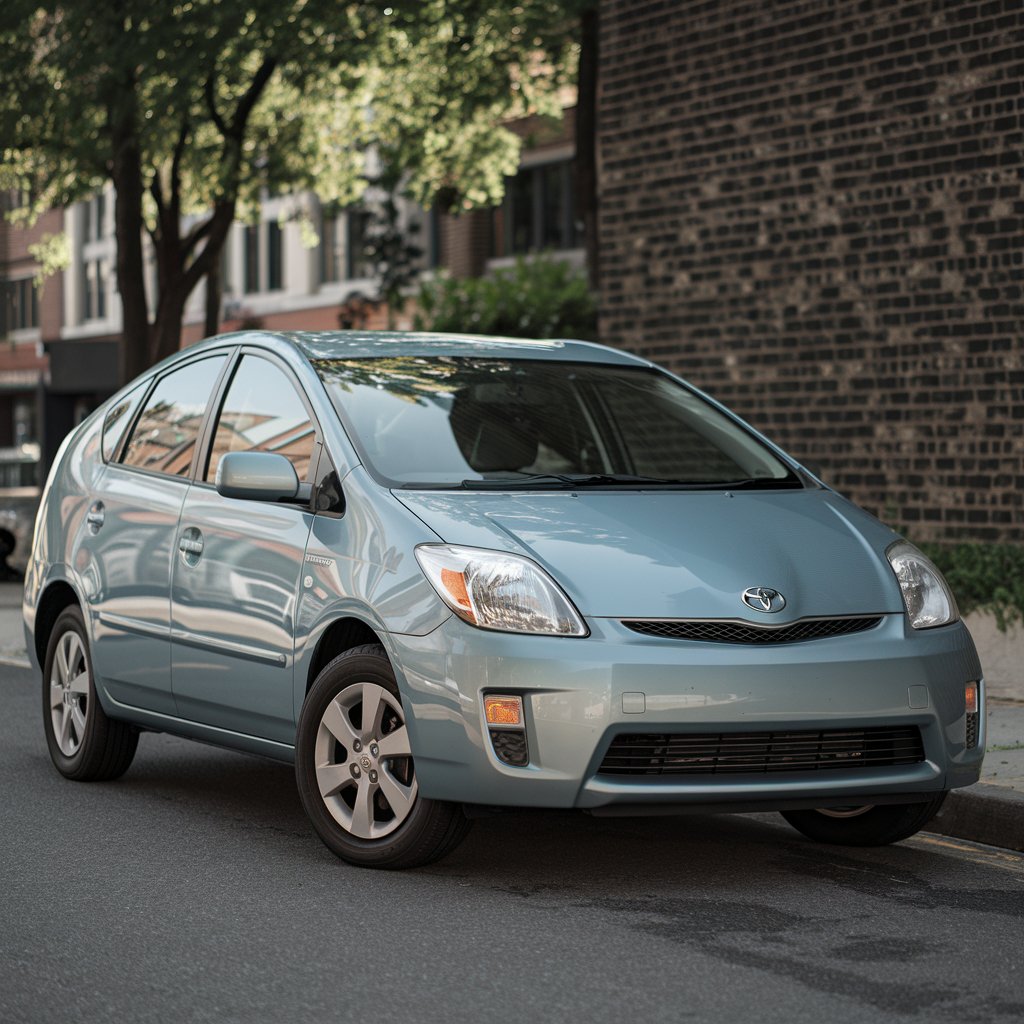
No, it is not safe to drive a Prius with a vibrating brake system.
A vibrating brake system is a definite sign of an underlying problem that can compromise your vehicle’s braking performance and safety.
- Decreased braking performance: This might make the stopping distances increase, especially in cases of emergencies.
- Increased danger of accidents: A failing braking system increases the dangers of accidents to a considerable extent.
- Other damages: Failure to address this might lead to damage to other parts of the braking system, such as brake calipers or wheel bearings.
How Can I Prevent Future Brake Vibration Issues In My Prius?
Regular Maintenance:
- Routine Checks: Regular brake checks are part of your routine maintenance. This way, a mechanic can detect problems early, such as worn brake pads or rotors.
- Brake Fluid Change: Brake fluid degrades with time and affects braking performance. Has it changed according to the manufacturer’s schedule?
- Tire Rotation and Balancing: Proper maintenance of tires can prevent misinterpretation of brake problems as problems caused by vibrations.
Driving Habits:
- Avoid Heavy Braking: Heavy braking may speed up the wear rate of brake components. The habit of smooth and light braking will increase the longevity of your brakes.
- Avoid Overheating: Avoid prolonged heavy braking. This is especially true when coming down steep hills. When the brake rotors get too hot, they warp.
Quality Replacement Parts:
- Genuine OEM Parts: The OEM parts are genuine, so you can be sure they will fit properly and function at their best.
- High-Quality Aftermarket Parts: If you choose aftermarket parts, then choose high-quality brands that meet or exceed OEM standards.
The Prius offers exceptional fuel efficiency and advanced technology. To explore other Toyota Hybrid options and compare them side-by-side, check out our Toyota Hybrid Model Comparison Tool.
What Maintenance Tips Can Help Prolong The Life Of My Prius’s Brake System?
Regular Checks:
- Visual Check: Check your brake pads visually. If they’ve worn down to less than 1/4 of an inch, it is time to replace them.
- Professional Check: Every year, have a skilled mechanic check your brakes. These experts can check for wear and tear on the rotors, worn calipers, fluid leaks, and other problems.
Easy Driving Practices
- Avoid Hard Braking: Hard braking accelerates the rate of wear on brake parts. Learn to brake smoothly and gently.
- Steer clear of Extreme Downhill Braking: Avoid bracing with your foot all down a downhill run. Overheating the brakes tends to warp the rotors.
Maintenance:
- Brake Fluid Flush: Brake fluid should be replaced every 2 to 3 years to ensure that moisture and contaminants in the system do not come into play.
- Tire Maintenance: Proper tire pressure and alignment should reduce stress on the braking system.
- Regular Oil Changes: This helps keep the engine healthy in general, which indirectly affects braking performance.
Additional Tips:
- Use the Regenerative Braking System: The regenerative braking system of the Prius helps in saving the brake. Use it to its maximum potential by coasting to a stop whenever possible.
- Do Not Idle as Much: More time spent stopped and going stops and starting will contribute to increased braking wear.
- Press the Brakes Less Harshly: Ease your brake pedal pedal pressure, particularly in frequent stop-and-go situations.
My Personal Experience:
“I recently had a disturbing problem with my 2006 Toyota Prius: the car vibrated whenever I applied the brakes. Initially, I was alarmed, as brake problems can be serious. A trusted mechanic told me that the most likely cause of this problem was warped brake rotors.
It took me about $300 to replace the warped rotors. That sounds pretty expensive, but I felt that my life and other people’s lives on the road would depend on it.
I drive more carefully nowadays to avoid severe braking and speeding. Furthermore, I will have my brakes checked yearly to detect any possible issues ahead of time.
Remember that proper maintenance and quicker responses to problems can avoid costlier repairs in the future.
Conclusion:
One common problem is vibration on a 2006 Toyota Prius when the vehicle is braked. Various things may cause this issue: warped brake rotors, worn-out brake pads, worn or defective brake calipers, some other kind of problem in tires, and worn-out bearings on wheels. Therefore, such problems require the immediate check of an experienced mechanic to determine and solve the actual causes of the problem. By following the recommended practices for maintenance, such as regular brake inspections, timely replacements of worn components, and gentle driving habits, you can significantly prolong the life of your Prius’s brake system to achieve optimal braking performance.
Why is my 2006 Prius vibrating when I brake?
This could be due to various reasons, including warped brake rotors, worn brake pads, or faulty brake calipers.
How much does it cost to fix brake vibration in a 2006 Prius?
The cost can vary depending on the specific issue and the severity of the problem. However, it’s typically in the range of $100 to $1000.
How often should I replace brake pads and rotors on my Prius?
The lifespan of brake pads and rotors can vary, but it’s generally recommended to replace them every 25,000 to 35,000 miles.
Can I drive my Prius with a vibrating brake system?
No, it’s not safe to drive your Prius with a vibrating brake system. It can significantly impact your vehicle’s braking performance and increase the risk of accidents.
How can I prevent future brake vibration issues?
Regular maintenance, gentle driving habits, and using high-quality replacement parts can help prevent future brake vibration issues.

